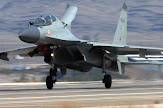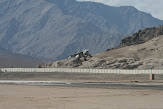For a long time I have been studying the political scenario in the Darjeeling Hills vis-à-vis the whole district and the state as a whole. Darjeeling Hills, the so called home, for the more than 1 crore Gorkhas of India does have a distinct parliamentary constituency by its name. And because of this, we have had our representatives elected to the parliament to the country. This has given us a trickle if not major political voice for our needs and grievances. Along with the lone Sikkim Parliamentary constituency and maybe one Parliamentary constituency from Assam, the entire Gorkha community in India is represented by these three key parliamentarians of Gorkha ethnicity.
Today as things unfold, only one constituency among the three which sent Gorkha parliamentarians may be able to send another Gorkha MP to the 15th Lok Sabha. That might be the Sikkim Parliamentary constituency. The outcomes for Tezpur parliamentary constituency are unsure as Mr. M.K. Subbha has been implicated in a foreigner issue. The other parliamentary constituency apart from Sikkim and Tezpur is the Darjeeling parliament constituency. This is the constituency which has been historically the only one which has sent a Gorkha MP to our Lok Sabha before the Nepali majority state of Sikkim was incorporated to the Indian Union. It has been the voice of the Gorkha people of West Bengal. A voice to assert their identity and a voice to air their grievances, which today in the colossal complex of West Bengal Legislative Assembly has been lost forever. But today as things stand even this constituency stands to lose this historic identity. The news flashing over major newspapers in Siliguri is Mr. Jibesh Sarkar as the potential CPI (M) candidate for the Darjeeling Parliament Constituency. What is peculiar about this news is that it is one of the few times in history when a Non-Gorkha was elected as the MP from Darjeeling. (The other times being when Mr. Inderjeet was elected at the insistence of Mr. Subash Ghising etc.) Moreover, every time we have gone to polls, all parties have respectively gone ahead and fielded a Nepali speaking (Gorkha) personality from their respective parties so much so that we had begun to think that the Darjeeling parliamentary constituency was completely Darjeeling’s. Today even after this announcement most of the people in Darjeeling Hills feels that it is a non-issue as the constituency is that of Darjeeling and only one chosen by the people of Darjeeling will be elected. The truth is far from it. At a close look at the demographic break up and population of the electorates of the respective assembly constituencies under Darjeeling PC will tell us other wise. I have listed below the assembly constituencies which fall under Darjeeling PC, and also as per the 2004 14th Lok Sabha Constituency figures, the number of electorates for the some of the constituencies
Darjeeling Parliamentary Constituency is made of the following assembly constituencies
1) Darjeeling Assembly Constituency
2) Kalimpong Assembly Constituency
3) Kurseong Assembly Constituency
4) Siliguri Assembly Constituency
5) Matigara-Naxalbari Assembly Constituency
6) Phansidewa Assembly Constituency
7) Chopra Assembly Constituency
The number of electorates for the three Darjeeling Hill constituencies in 2004 was as follows,
Darjeeling: 176498
Kurseong: 166846
Kalimpong: 150858
Total : 494202 ( All figures 2004; 2009 has revised figures )
Total no of electorates Darjeeling Parliamentary Constituency: 1249238 (2004 including Islampur)
The above figure gives a rough figure of 40:60 ratios among Hill electorates (Pre-dominantly Gorkhas) and Plains electorates (Pre-dominantly Bengalis). One thing to be considered is that Islampur Constituency which was a large constituency in terms of population has been removed from the Darjeeling PC this time.
Now considering the decadal growth rate of the Siliguri Sub-division which was 38.9% between 1991 – 2001, and a decadal growth rate of 8.8% for the three Hills Sub-divisions of Darjeeling between the same periods, we can roughly understand what the outcome would be to the ratio of electorates between the Hills and the plains. No doubt the exit of Islampur will impact favorably for the Hill electorates but considering the explosive population growth rate of the plains with respect to the hills, this effect can be offset and we can deduce the same population ratio for the Hill vs. plains electorates.
Now coming to the question of outcomes of 15th Lok Sabha elections for Darjeeling, the results can be seen that whoever the plain’s people chose will definitely come out as the clear winner of the outcome based on statistics alone. This is where quick thinking and strategy comes into picture. What do we do to protect the last vestige of our political power? What do we do so that our political power is retained intact so that our voices are heard, and we are able to make a favorable impact on the nation’s political structure to squeeze out a favorable consensus for ourselves?
As you know in the past the candidates standing up for election from this crucial constituency were of ethnic Nepali origin. As such, even if not Gorkhaland, other political grievances of the Gorkha population were expected to be fulfilled. That fact that all political parties cared for the sensitivities of the Gorkha populace whether from Hill or plains was evident. Even the CPI (M) had till then fielded a Gorkha face which helped them capture the Nepali vote bank from the plains. But this time CPI (M) has fielded an Ethnic Bengali candidate from the Darjeeling Parliamentary constituency clearly upsetting the delicate ethnic balance in the Darjeeling constituency. The move seems to be that of clearly marginalizing the Gorkha community, and totally wiping out the political power of the Gorkhas from the national scene. This seems to be a clever move on the part of CPI(M) to tap into the Gorkha-Bengali divide, and take the Gorkhaland protagonists head on, with the brute majority of the Siliguri, Matigara, Phansidewa and Chopra assembly constituency (whose electorates out number the remaining three Hill constituencies) to finish off the political prospects of the Gorkhas. This way they are completely marginalizing the Gorkha/Nepali population of Darjeeling politically, ones and for all. This is a clever move to stall any aspect of any political party from supporting the GL issue after the elections, thus ending the prospects of GL once and for all. If things go this way then there will be no other option left for the Gorkhas of Darjeeling to put whatever they have into GL agitation. Its like do or die. If GL agitation doesn’t bear fruit, then the people of Darjeeling will forever be marginalized politically in India by the ethnic Bengali majority of West Bengal.
Now the question is what can GJMM or any other party which represents the Gorkha interest do in order to protect the political rights of the Gorkha people? For that, the people of Darjeeling Hills will really have to ensure that every eligible living soul in Darjeeling votes, and votes for one party. Their votes should not be divided and there should be a mass consensus on the candidate to vote. It is the opinion of the author that only GJMM putting up its own candidate will be able to take on CPI(M) head on. As per 2004 elections, the ratio of electorates between the hills and the plains stood at 60:40 in favour of the plains. The plains votes can be divided by using the Congress to divide the votes between CPI(M) and them and perhaps other political parties. While the Hills should stand firmly behind one GJMM candidate. It is imperative that GJMM fields its candidate so that there is no division of votes in the hills, and absolute majority of the people vote for GJMM and GJMM only. That is the only possible way of electing the desired MP from Darjeeling Parliamentary constituency. Any other party supporting GL will not get the ethnic Bengali votes in the plains, so even if Congress or BJP support GL, their candidate will get no votes from among the Non-Gorkhas of the plains, on the other hand the Gorkhas residing in the plains will have to favour and caste their votes to the GJMM to ensure our political survival. Moreover the fielding of an Ethnic Bengali candidate will upset the Nepali sentiments in the plains, and this can be tapped in by GJMM. So its better to use multiple parties that don’t support GL to break the CPI(M) hold in the plains at the same time keeping a decisive edge by holding all the Hill electorates under one roof. This will ensure we divide the plains vote among leading National political parties based on ideology, and at the same time keeping our Hill’s votes under one political party based on ethnicity. This way we use the oldest trick in the book “Divide and Rule” to ensure the political survival for our race, so that our grievances and our demands are looked upon, and one day eventually our long cherished dream of Gorkhaland is met using non-violent and democratic means. Hope someone is listening!
Thursday, February 26, 2009
Politics of the 15th Lok Sabha elections and the implications on the People of Darjeeling
Posted by Anant Dhamala at 4:05 AM 1 comments
Tuesday, February 3, 2009
We the Indian Gorkhas and the so called Greater Nepal Theory
I was just going through my regular dose of surfing the net today, thats when one of my dear friend Arnav, whom we fondly call BBG ("Bengaluru ko Bimal Gurung" for his deeds on working for the welfare of Gorkhas in Bangalore), pointed me to support him in refuting a serious allegation made in a particular forum by a poster who had posted his logic on The Greater Nepal theory. According to the author of that thread, he alleged that many parts of India including Sikkim and Darjeeling were parts of Greater Nepal, and should be returned back to them. He further went on to claim that people leaving in these regions supported his claim. We, Arnav and me being residents of both Sikkim and Darjeeling on behalf of all us Indian Gorkhas immediately refuted his claim. At this juncture in India, where we are fighting for a separate state for the Gorkha population of Darjeeling, when one of our most respected political leaders in Sikkim, have been branded a foreigner, some nobody propping up from some foreign land and spreading these weird and false rumors to shake up the very sovereignty of our beloved country is totally unacceptable. To top that, claiming he has the support of us Indian Gorkhas shows us totally in a bad light. I as a sane Indian had to refute it in all possible way.
To start with, this whole Greater Nepal theory is nothing but a fallacy of great proportions, which has been brought up by people who have nothing else to do but fantasize about the past. These are people who live in a very hypothetical world. To understand this we need to notice the basic fact. Nepal and India are two separate countries today, one (India) is an aspiring economic and military power in the world, the other (Nepal) is an economically impoverished and politically on the brink of a failed state. The comparison between the two is totally asymmetric. And to profess a theory where the former will cede to the later a significant part of its territory on the basis of some weird historical logic is nothing but day dreaming. Everybody has to understand hundreds of years ago, there was no Nepal or India, there were hundreds of princely states which were later unified together under a single political entity of Nepal and India by their respective rulers, that was a process and not the end, what we have today is the final border and territories based on those unification process, these process involved wars, fighting over territories and winning and losing battles. What happened happened, and because of what happened then, today we have what we have, nobody can change this. India inherited all its territory which was part of British India at the time of Independence, and which had not been transfered to Pakistan. Unless, ofcourse Nepal wants to wrest those territories from us like Pakistan or China, there is no other way that it can be done. As for the Sugauli treaty, it's better to accept the fact that Nepal had signed the treaty when they lost a war, they should be grateful the British didn't annex their country like they did with the rest of India, had they done that, which they infact could have done, Nepal would have been a state of India. So it's time people stopped living in a dream world and stop cooking up weird logics. The politicians in Nepal should first deal with those parts of their country which they have; establish a good state, with a strong economy, and a happy and satisfied population. It’s an irony that the leaders there are barely able to lead their own country and yet they want what’s ours.
As for some people arguing that the large segment of Nepali speaking people in India want to join Nepal, well it’s a falsehood of the greatest kind. We are Indians, we are one of the 2nd largest developing economies of the world, and our country is an aspiring military power. We live in a democracy, where even though things take a longer time to happen, the truth and the people do always win. Ours is the largest democracy in the world and our values in upholding that democracy is second to none. Yes, we have a rich cultural exchange between Nepal, and India, and both have mutually benefited as a result of this exchange. While we in India, value the yet prevalent rich cultural heritage of Nepal, people in Nepal benefit from the great talents that Indian Nepalis have brought to Nepal, (even their former Royal was educated in Darjeeling). But then cultural ties are a different issue and political reality a different one. We are Indians, and nothing else, no further argument is necessitated after this, what language we speak or what ethnicity we belong to is a matter among us Indians, and none of any business for foreigners. Yes, a lunatic of an Indian Nepali politician might have written to one of their kings or whatever, but that was for his own political mileage, and perhaps our generation has learnt, the outcomes of such futile exercises. We have our politicians who are able to stand up for us and that’s that. We have no desire to be part of any failed state, our argument has been simple right from the beginning, we are Indians, and not Nepalese, as made out to be, and as claimed by the likes of these Nepalese politicians. We are Indians, our ancestors have given their blood and sweat to make this country what it is today, and we want to be there to reap the benefits of the fruits. Nobody from any foreign country can stand in our way, just because some lunatic people staying in some other country, fantasizes about his own so called interpretation of history.
Posted by Anant Dhamala at 1:23 AM 0 comments









